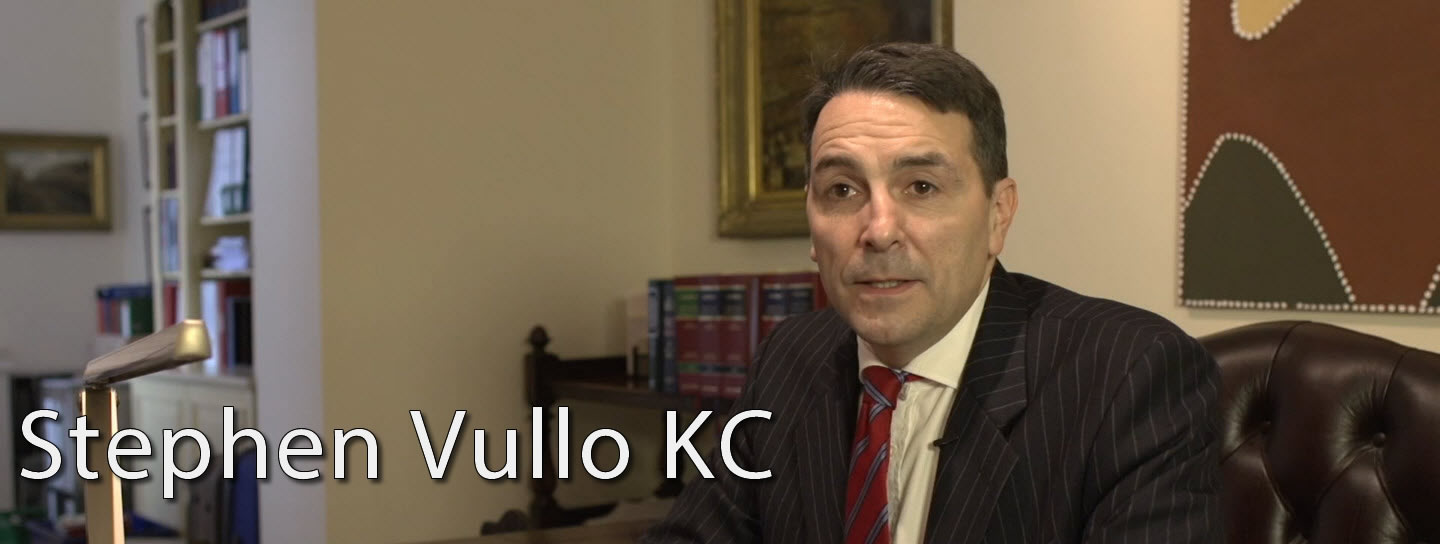The jury directions given at the trial of a well-known publicist for historical sexual offences had not been inadequate or unfair, and his conviction for indecent assault was safe.



The jury directions given at the trial of a well-known publicist for historical sexual offences had not been inadequate or unfair, and his conviction for indecent assault was safe.
CONSENT CRIMINAL EVIDENCE CRIMINAL PROCEDURE FRESH EVIDENCE HISTORICAL OFFENCES INDECENT ASSAULT JURY DIRECTIONS SEXUAL GROOMING SUMMING UP
A member of a group under police surveillance who had entered into a sexual relationship with an undercover police officer was unable to establish that her lack of knowledge as to the officer’s true identity vitiated her consent to sexual relations within the meaning of the Sexual Offences Act 2003 s.74. There was no justification for extending the common law position as contended for by the claimant, namely that the matter to which the deception related had to be sufficiently serious in objective terms as to be capable of being regarded as relevant to a woman’s decision-making and that, subjectively, the deception went to a matter which the woman regarded as critical or fundamental to her decision-making.
CONSENT CRIMINAL LAW CRIMINAL PROCEDURE DECISIONS TO PROSECUTE MISCONDUCT IN PUBLIC OFFICE POLICE POLICE OFFICERS PROCURING INTERCOURSE RAPE
Although a judge had unnecessarily and improperly intervened during a defendant’s examination-in-chief, the interventions were not so significant as to materially impair the defendant’s ability to put his case before the jury. The judge’s interventions, combined with deficiencies in his summing-up, had not deprived the defendant of a fair trial.
CONSENT CRIMINAL PROCEDURE EXAMINATION IN CHIEF INTERVENTION JUDGES RAPE RIGHT TO FAIR TRIAL SUMMING UP
Where a 19-year-old offender had taken advantage of a 12-year-old girl’s willingness to engage in sexual activity there were no exceptional circumstances that justified a non-custodial sentence; a community order was replaced by a sentence of three-and-a-half years’ imprisonment.
CHILD SEX OFFENCES CONSENT MITIGATION NON-CUSTODIAL SENTENCES RAPE OF CHILD UNDER 13 SENTENCING UNDUE LENIENCY WHETHER EXCEPTIONAL CIRCUMSTANCES JUSTIFYING NON-CUSTODIAL SENTENCE FOR 19-YEAR-OLD OFFENDER YOUNG OFFENDERS
An appellant’s conviction for rape was safe where there was substantial evidence before the jury that the victim was intoxicated and incapable of consenting to sexual intercourse with him. There was no presumption that the conviction was unsafe because the judge did not give a good character direction.
CAUTIONS CONSENT CREDIBILITY CRIMINAL EVIDENCE CRIMINAL PROCEDURE GOOD CHARACTER JURY DIRECTIONS RAPE
When dismissing an appeal against conviction for sexual activity involving children, including rape and trafficking within the UK for sexual exploitation, the court considered the issue of consent. Where a vulnerable or immature individual had allegedly been subjected to grooming for sexual purposes, the question of whether real or proper consent had been given would usually be for the jury to decide, unless the evidence clearly indicated that proper consent had been given.
CONSENT CRIMINAL LAW CRIMINAL PROCEDURE DE MINIMIS ENGAGING IN SEXUAL ACTIVITY IN PRESENCE OF CHILDREN GROOMING OF VULNERABLE OR IMMATURE PERSONS FOR SEXUAL PURPOSES INDECENT PHOTOGRAPHS OF CHILDREN RAPE REAL OR PROPER CONSENT s.1 s.1(1) s.10 s.101 s.11(1) s.3 s.58 s.58(1)(a) s.59A s.9 SENTENCING SEXUAL OFFENCES ACT 2003 s.58(1) TRAFFICKING FOR SEXUAL EXPLOITATION YOUNG OFFENDERS
Guilty verdicts on two sample counts of rape relating to a six-year period were logically inconsistent with acquittals on four specific counts of rape against the same victim. A reasonable jury could not, on the paucity of the stand-alone evidence concerning the sample counts, be sure of guilt in relation to them if they rejected the specific events.
CONSENT COUNTS CRIMINAL LAW CRIMINAL PROCEDURE INCONSISTENT VERDICTS JURIES PREVIOUS INCONSISTENT STATEMENTS RAPE
A trial judge had correctly ruled that the contents of a conversation revealing details about a rape victim’s previous sexual behaviour were not admissible under the Youth Justice and Criminal Evidence Act 1999 s.41.
ABUSE OF POSITION OF TRUST ADMISSIBILITY CONSENT CRIMINAL EVIDENCE CRIMINAL LAW HONEST BELIEF RAPE SENTENCE LENGTH SENTENCING SEXUAL BEHAVIOUR YOUTH JUSTICE AND CRIMINAL EVIDENCE ACT 1999 s.41
A rape victim’s evidence that she had little memory of the events was not sufficient for the judge to remove the case from the jury. There had been sufficient evidence for the jury to decide whether the victim had consented.
CONSENT CRIMINAL PROCEDURE INTOXICATION NO CASE TO ANSWER RAPE
The court gave guidance regarding the assessment of a complainant’s mental capacity in a criminal trial when the alleged offences involved proof of a lack of consent.
ASSESSMENT OF COMPLAINANT’S MENTAL CAPACITY BURDEN OF PROOF CONSENT CRIMINAL EVIDENCE CRIMINAL LAW CRIMINAL PROCEDURE (INSANITY) ACT 1964 s.4A EXPERT WITNESSES MENTAL CAPACITY MENTAL CAPACITY ACT 2005 s.2 MENTAL HEALTH PERSONS LACKING CAPACITY s.1 s.1(2) s.2(1) s.2(4) s.30 s.30(2)(a) s.31 s.31(2)(a) s.32 s.32(2)(a) s.33 s.33(2)(a) s.4 s.4(5) s.42 s.44 s.74 s.75 s.76 SEXUAL ASSAULT SEXUAL OFFENCES SEXUAL OFFENCES ACT 2003 s.3 SEXUAL OFFENCES INVOLVING PROOF OF LACK OF CONSENT STANDARD OF PROOF
Please use the form below to make contact. Your email will be responded to promptly (we endeavour to respond to all email enquiries within one hour). Alternatively, you can call Stephen's firm, Twelve Tabulae Limited, on +44 (0) 203 846 5801.